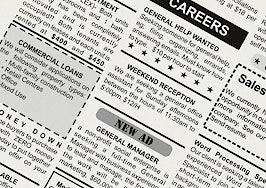Recently my company, Wizehire.com, conducted a research study into the natural traits and strengths of the top performing real estate agents. Using a battery of validated personality profiles we sought to identify what — if any — characteristics correlated only with top performers in a variety of real estate roles.
We studied listing specialists, buyer’s agents, administrative assistants, transaction coordinators and inside sales agents. Although we discovered some interesting things in each role, here I will only dive into the specific findings of the buyer’s agent. In subsequent articles, I will cover each of the other roles studied.
The profiles used in the research were the DISC Index and Values Index profiles. The DISC Index measures an individual’s natural behavioral style, which directly affects their strengths and weaknesses when it comes to tasks and actions. It can be seen as “how” someone gets the job done. On the other hand, the Values Index measures one’s motivational preferences or passions, which affects how engaged they will be in a given role. The more motivated and excited one is for their culture and work, the better they perform and the more satisfaction and longevity they have in that work.
The study:
- Over a period of six months, we administered DISC and Values profiles to 8,791 total agents.
- Of those, 5,554 were primarily buyer’s agents.
- Of those, 944 (17 percent) were “top performers” (i.e., >25 transactions in a calendar year), with 4,610 (83 percent) constituting the control group.
The findings
We found statistically significant correlations in only the best-performing buyer’s agents in the following areas:
More relatable
They had higher levels on the “I” dimension (interactiveness). This quality allows them to more easily, and efficiently, connect with clients. This dimension could also be called the “influence” dimension, which brings with it a natural strength for being an extrovert, engaging new people, being outgoing and very social. When this trait is low, agents struggle with proactively meeting new people or comfortably socializing.
Downside: the higher the “I” dimension goes, the more disorganized and unstructured someone becomes, so many times the best buyer’s agents are the worst at paperwork and organizational detail.
More stable
The best buyer’s agents also had higher levels of the “S” dimension (stability). This trait means they are naturally good at making others feel comfortable, safe, secure and supported. In other words, the best buyer’s agents are good at dealing with people who are feeling somewhat stressed out, and they have a natural ability to calm them and provide stability — which helps them make the buying decision.
Downside: the higher the “S” dimension goes, the more problems they have with aggressive sales activity. The best buyer’s agents are great at customer support and relational selling but struggle with prospecting and proactive lead generation tasks. They tend to do better with providing awesome support and service to their clients, then hunting those clients down in the first place. Therefore, they rely more on passive lead generation where clients come to them.
Moderately dominant
Unlike the best performing listing agents, the best buyer’s agents have a moderate level of the “D” dimension (decisiveness). It’s a sort of Goldilocks range — not too high, not too low. This trait helps them to be more understanding and patient with indecisive buyers, yet decisive enough themselves to push when need be.
Downside: although this level of “D” does help in dealing with the tasks of a buyer’s agent, it can be too low to support more dynamic lead generation and aggressive closing.
Low attention to detail
Because no one can have everything, here in the “C” dimension (conscientiousness), the best buyer’s agents consistently score low. This score means that their level of attention to detail, ability to be organized and accurate is naturally something they aren’t good at, at all. This fact allows them to be flexible enough to respond to the never-ending ebb and flow of the buyer’s will. They are better-equipped to handle needy, indecisive client requests like “I must have a pool, well a basement, no we can’t live without…” It also frees them up to be more creative and free flowing, which translates to adaptability in an ever-shifting target environment.
Downside: the best buyer’s agents do much better when they have some external support from an administrative assistant when possible. They can manage the details themselves, but it requires significantly more conscious effort, creates a greater psychological drain, and in the end they still struggle to be as accurate as other personality types.
Super economic motivation
The single most significant correlation we saw in the study, across any role, was the degree of one motivational dimension called the “economic drive.” With a Pearson’s correlation (a fancy statistical word for “how related or dependent” two things are) of 0.86, the best buyer’s agents across the board are motivated by one thing more than any other. That drive is economic gain.
Put differently, the best buyer’s agents are more motivated to earn commissions than to learn new things, serve mankind, be in charge of their own destiny, achieve security or any of the other drivers we measured. Naturally, this works in their favor given the nature of the role.
If you succeed — you earn money. If you don’t — you don’t. It seems like a real “Captain Obvious” statement, but you’d be surprised how many buyer’s agents don’t have a significant drive in this area. And because they aren’t driven in this area, they aren’t as intensely focused on making the sale or closing the transaction.
Much of their satisfaction comes from another aspect of the job; for example, those driven by the altruistic dimension are satisfied having just helped someone, regardless of whether or not they buy). Traditionally the role of real estate agent isn’t marketed or seen as a traditional sales job per se.
Many agents get into it with thoughts of having fun in their spare time, being their own boss, socializing with their network and other attractive aspects. They fail to understand that it is very much a traditional sales job and thus, requires sales activity. Therefore, it shouldn’t come as any surprise to find that those who perform the best, are those motivated like traditional salespeople — they seek financial reward from the hunt and the close.
Summary
It turns out, not all agents are created equal. There are, indeed, significant and demonstrable personality characteristics that differ among various roles in real estate. Some are ideally better-suited to work with buyers, others sellers, still others inside sales. Of these differences, there are distinct traits that predict superior performance in the role of buyer’s agent alone. The best here are more social, more stable, more supportive and a little less aggressive.
Those who outperform the rest are more motivated by the sale and commission — as all good salespeople are — but do better with sales leads generated for them or indirectly, compared to the typical hunter/gatherer sales model. As such, teams or brokerages might want to consider supportive measures to drive more sales, such as an inside sales agent and administrative assistant. This structure will free the buyer’s agent up to do what they do best, which is support the customer through the process to find the right house and close.
Jay Niblick is the co-founder and president of Wizehire.com and Innermetrix Incorporated.






